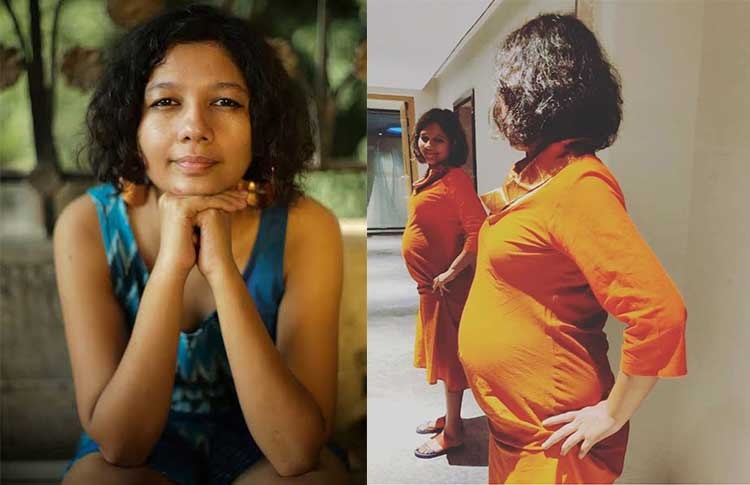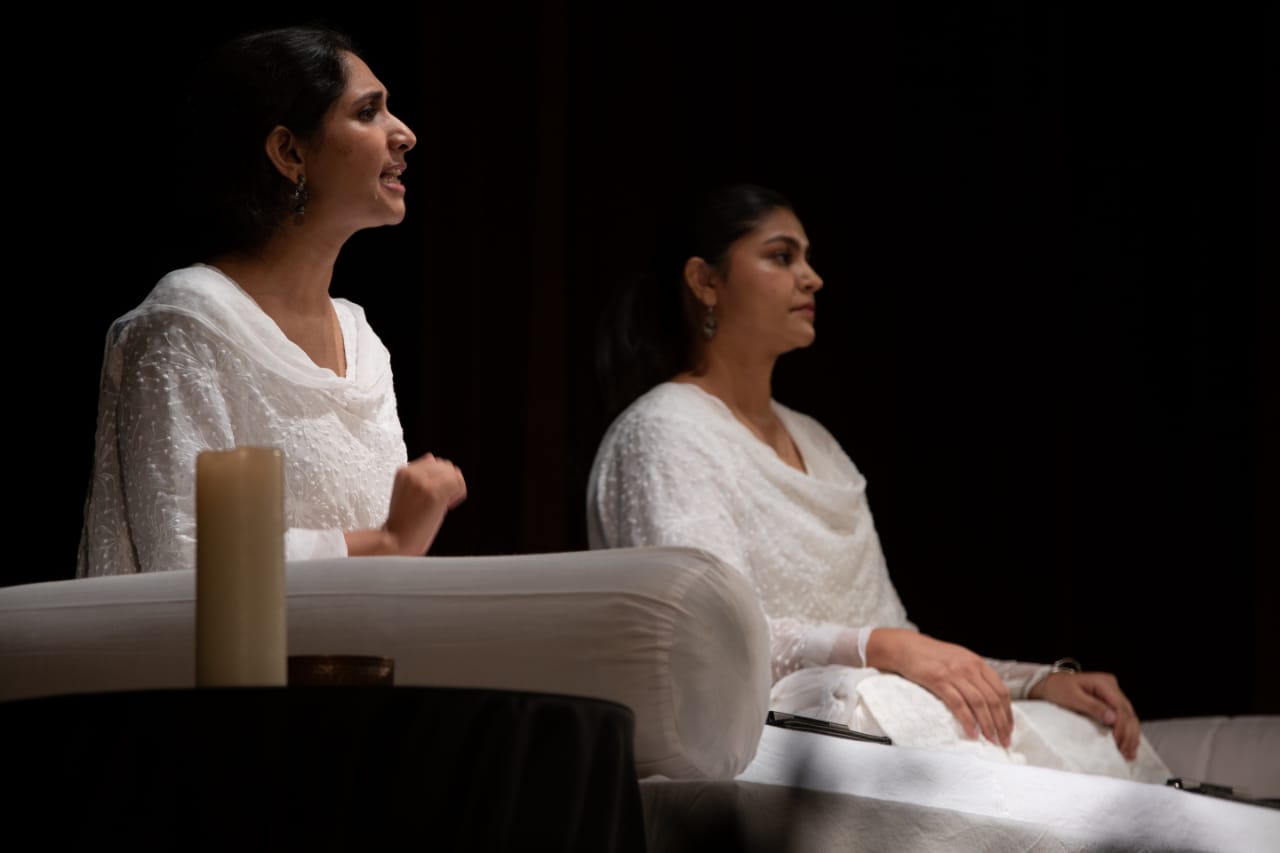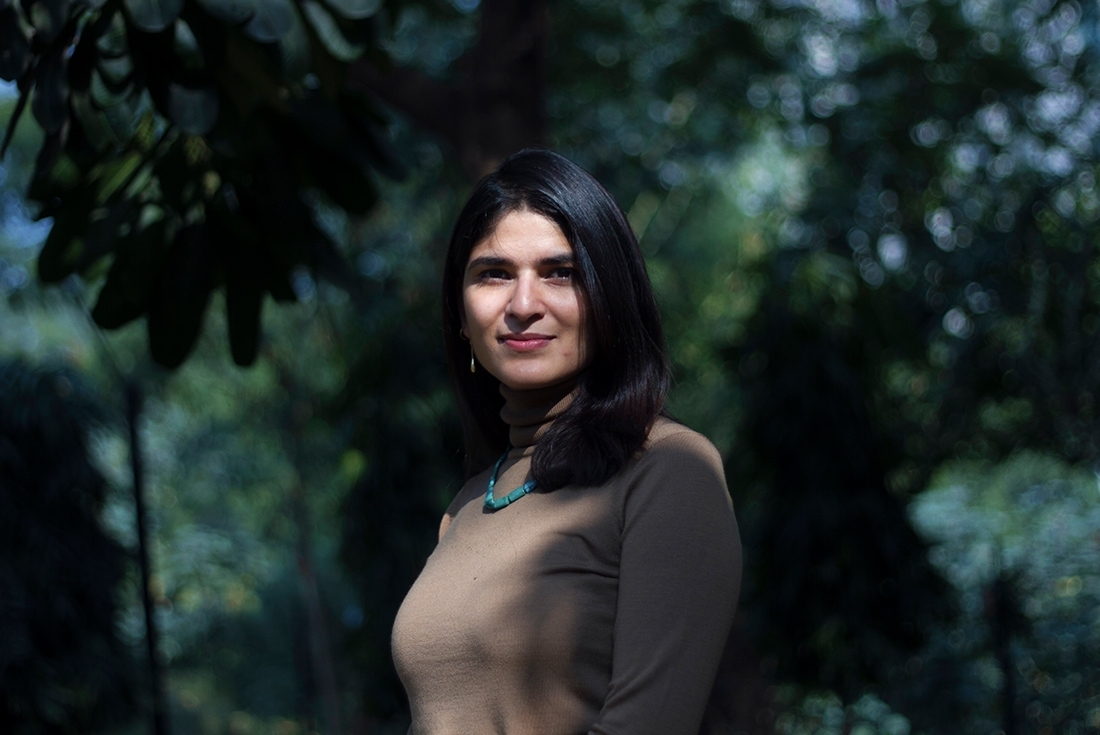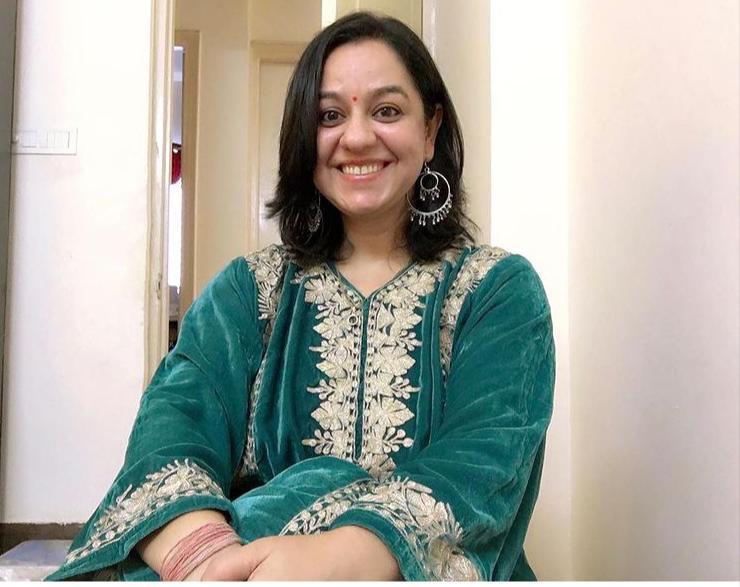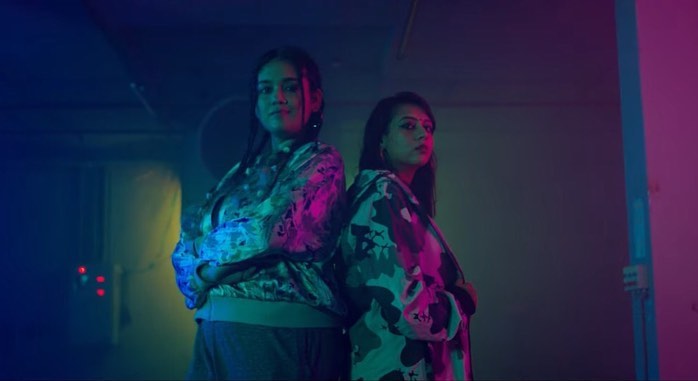Writer Manish Gaekwad On Growing Up In The Kotha Without Men, And His First Book ‘Lean Days’
- IWB Post
- October 1, 2018

There is no better teacher than life itself – the phrase that sums up the life of the extremely talented and wonderfully poised man, Manish Gaekwad. I first read about Manish on Women’s Day. The article was titled, ‘I Am a Tawaif’s Son: Growing up in Mumbai’s Brothels’. It was the title that made me open the article, but two paragraphs into it, and the story had me enthralled.
Help me give you a brief rundown of what I felt by the time I finished reading the article, and about how I finally reached to having something to write about Manish’s relationship with his mother, his growing years, his writing, and recently released first book, Lean Days.
Not to talk about my writing skill and infant writing experience, but it is not often that I find myself facing the dilemma of where to begin from, how to tell what I want to tell. No surprises there, today was one such day.
Later, recalling my own words – just start writing, words will carve their way out of your thoughts – I began. But thinking about where do I take you next, let me take you back first. “In one of my earliest memories, I am a toddler bawling in the arms of an underage maid. She is standing on the top rung of a rickety wooden staircase, where a dark, narrow corridor leads to an open door. From inside the room, a bright white light emanates; two women are engaged in a tussle with an armed man. One of them is my mother. In that screaming chaos, the drunken man is flashing a knife, yelling, “randi, randi” at the top of his voice. The women scream back.”
That was Manish.
“I extend one frantic arm in the direction of the door, trying to reach out to save my mother. It doesn’t help. Her finger gets chopped in the attack. There is blood.”
Until the age of four, Manish lived with his mother in an area that Mumbaikars know by varied names: Kennedy Bridge, Pavan Pool, Congress House, and Foras Road. “I grew up among the sounds of thumris, ghazals, the heady scents of mogra, and a splash of whiskey poured every night in these kothas located near Congress House, the compound of which proudly holds the rusty sign board Mumbai Sangeet Kalakaar Mandal at the entrance. In 1972, Prime Minister Indira Gandhi had set up the music academy to rehabilitate musicians, singers, and dancers, leading to the proliferation of mujras in the city.” But when he was all of five, his mother had to admit him in a boarding school in Kurseong (and later, Darjeeling) because some bullies threatened to abduct him.
Our society has perceived courtesans a certain way, and needless to say, categorised them quite harshly. But reading Manish’s beautifully stitched narration about his mother, and about how he grew up understanding her life while dealing with everything that it subjected him to, I got reminded of a poem of one of my favourite poets, Nayyirah Waheed, in which she talks about a feeling of relief that comes from seeing the feminine presence in a man’s eyes. The latter half of which reads: it means he is a peace I do not have to bring to him. An expression that one can’t see but feel, and I felt that in Manish’s writing.
“My mother’s name is Rekha. Line. A word we use to describe the interloping straits on our palms. Palmists examine the lines to predict the future. She cannot read, or write, but she shaped my future, fully comprehending that hers was denied.”
During our conversation, surfaced the topic of ‘Growing up in a kotha, and without the influence and presence of men’.
“Women, young girls, and infants were my only friends and family. Boys were missing from the house party. I was not the only adolescent boy in the Kotha. There were a few others, Bunty, Sonu, Monu, Pappu, but they preferred to hang out with the street rowdies more than with the womenfolk at home. They were not training to be pimps but to become men of honour; trying to groom their own macho identities away from the illicit world of their fussy mothers and sisters.”
But 15-year-old Manish chose to stay inside as it helped him deal with the chaos outside. He’d read discarded books, magazines (borrowed from a raddi shop), and newspapers (from pocket money), and even back then, what had him intrigued were the unusual storylines of films like Wild At Heart, The Piano, and My Own Private Idaho that he watched on television.
Back then it was a common act for young men to loiter around the lanes of Bandook Gully in Bowbazar, where the courtesans of Kolkata thrived, and bully the little boys by calling them out as ‘randi ka beta’.
“The words boomeranged in the air as if someone had announced the title of a new grindhouse hit. The boys would fight those men, and in return get bashed, punched, and wounded. They’d visit prostitutes, consume drugs and quarrel with their mothers – They detested their environment but did not know how to break free from the indignity of randi ka beta. I, on the other hand, was a wimp in the streets, and would walk as far away from the crowds. I did not offer to have my nose broken to score a point over the humiliation I felt from a few choice words randi ka beta.”
He did not detest the safety the kotha offered. There were no men inside to bully and tease him. Recalling those days, he then mentions a story called The Bet, by Anton Chekhov. It was about a lawyer who accepts a bet of house arrest for 15 years. A bag full of money awaits him at the end of the term. He stays locked indoors, reads books and upon his release forfeits the cash prize for the wisdom he has gained instead.
And the story had a powerful impact on the little boy. He found his cash prize embedded in the text. He began to write about everything he saw, heard, and read every day from inside his fortress, the kotha. “I kept a diary between the ages of 15 and 20. I cannot be certain of what I felt, because I had not yet grasped how to fully express my feelings, when in one of the earliest entries I noted tersely – I am always made to feel like a haraami, a person of wedlock, a bastard. I don’t spare anyone when I write, even myself.”
And with every book and diary entry, unaware he went on nourishing the writer within. As the conversation furthered on writing, he shared, “I write because I don’t know what to write and through the process am able to find clarity in my unspoken thoughts and feelings.”
A reflection of which is his recently released book, Lean Days. It is a journey of a writer, an unnamed narrator who travels across India and Nepal and meets various people.
Some quickies from our conversation on the book:
Did the search of a story help you discover any new story about self?
I realised in my journey that it is not enough for me to know the world through books; travel enriches it further. How vulnerable I am on my own in this vast world is what I discovered and that realization is a humbling experience.
Best things that happened to you while living life with no plan and guard?
Aimlessness is the compass we sometimes need in life to find a direction. When I took off for a year without a plan in sight, I was hoping that along the way I would gather writing material to give shape to a book. It is like walking into a meadow of wild flowers and plucking only those that please the senses. I took a notebook along the entire journey, writing stray sentences and abstract thoughts that I later turned into prose and poetry.
Ah! And who were the first people to read the book? Did they bombard you with feedback?
A few friends read it simultaneously on release and they are partial so their review does not count. As part of an outreach campaign the book was sent to a few book lovers across the country as a surprise gift. A gentleman from Assam and another from Chandigarh wrote to me saying how unusual the narrative was, mixing travel with autobiographical elements and fiction.
Is there something that the queer community could look forward to in the book?
The narrator meets a lot of people from queer community, but equally from any other kind of community there is out there, so it is not specific to anyone, but yes, both the queer community and the non-queer community will discover that the central character is looking for love and sometimes confuses it with sex.
And lastly, word of advice for people who wish to write a book but feel they don’t have a story?
Read, travel, and write about these two things. Stories will emerge.
“Start with reading first – read books, not Instagram stories. Getting published comes next.” A small note on Manish’s behalf for people who fear the struggle of publishing.
First published on May 23, 2018.
- 0
- 0





